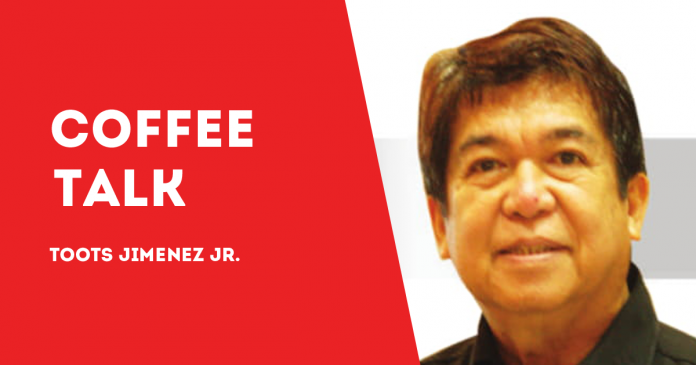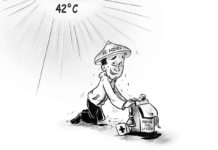
IN THE PHILIPPINES, a longstanding political tradition allows senatorial candidates to emerge from any part of the country, provided they can read, write, and are Filipino citizens.
Interestingly, neither a medical certificate of good health nor a police or NBI (National Bureau of Investigation) clearance is necessary to qualify for the Senate. This oddity extends to other elective positions in our country.
When a candidate is financially disadvantaged, they’re often dismissed as a “nuisance candidate” since success in elections typically requires either vote-buying or selling one’s intentions.
***
Recently, a group of coffee enthusiasts, including a doctor, golfer, engineer, and teacher, gathered to discuss a novel idea for improving the political management of our nation, which is plagued by corruption. This new administration, much like its predecessors, seems to have made little progress in addressing these issues.
***
The group pondered over a simple question: why, unlike congressmen who represent specific districts, do senatorial candidates not represent distinct areas of the country? With 24 senators and three major islands in our nation, the engineer initiated the conversation.
***
The golfer, sipping his black coffee, questioned the areas of concern that senators truly represent, aside from their committees. He wondered if they could more earnestly represent specific regions like Luzon, Visayas, or Mindanao.
***
The doctor proposed a fairer system for the Filipino people: eight senators to represent (not necessarily originate from) each major island. For instance, Mindanao’s senators could have offices across various parts of the island, such as Davao, Misamis Occidental, Butuan, and others. The same would apply to senators from the Visayas and Luzon, each group representing diverse areas within their respective islands.
***
The teacher added that this system would not only reduce the costs for senatorial candidates but also ensure better representation for the people. Currently, the Filipino public finds senatorial representation ineffective, as senators focus on their personal interests rather than the needs of the territories they visit.
***
Discussing specific examples, the group talked about Iloilo’s fortune in having Senator Franklin Drilon, who significantly contributed to the city and province. He thus enjoyed the Ilonggos’ unwavering support. In contrast, Negros Occidental’s Rafael Alunan didn’t receive similar support from his constituents, who preferred senatorial candidates from Luzon.
***
The teacher expressed skepticism about the senators’ willingness to change the Charter for the betterment of governance, given their focus on personal gain. The engineer lamented that winning elections has become a matter of financial prowess, with candidates needing to buy votes to secure their positions of wealth, influence, and power.
***
The doctor from Panay highlighted Mayor Jerry Treñas’ commendable efforts in the City of Love, stressing the importance of supporting leaders who genuinely care for their people, as opposed to well-funded yet inexperienced newcomers.
***
Finally, the golfer suggested that Charter changes often seem more beneficial to politicians than the public. He proposed stringent qualifications for candidates, including good health, a clean record verified by the Philippine National Police, NBI, and courts, and education in public administration. Additionally, reducing salaries and benefits might deter greedy candidates, paving the way for those truly committed to serving the public.
***
As the group concluded their coffee talk, it was evident that change is much needed in the political landscape of our nation. The hope is that such conversations will spark a movement towards a more equitable and effective governance system. /PN



